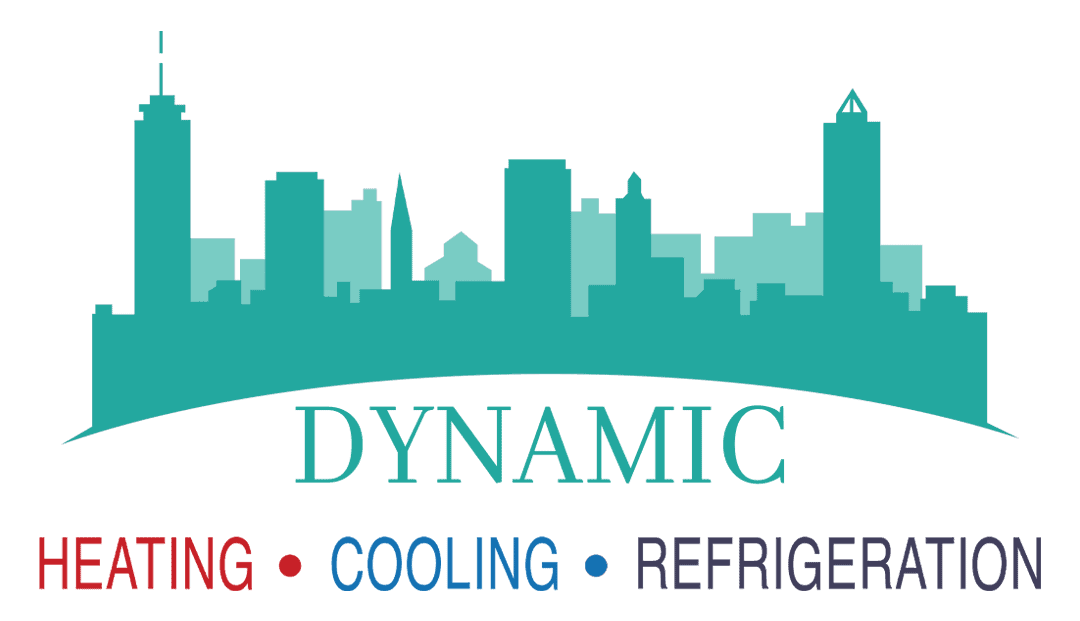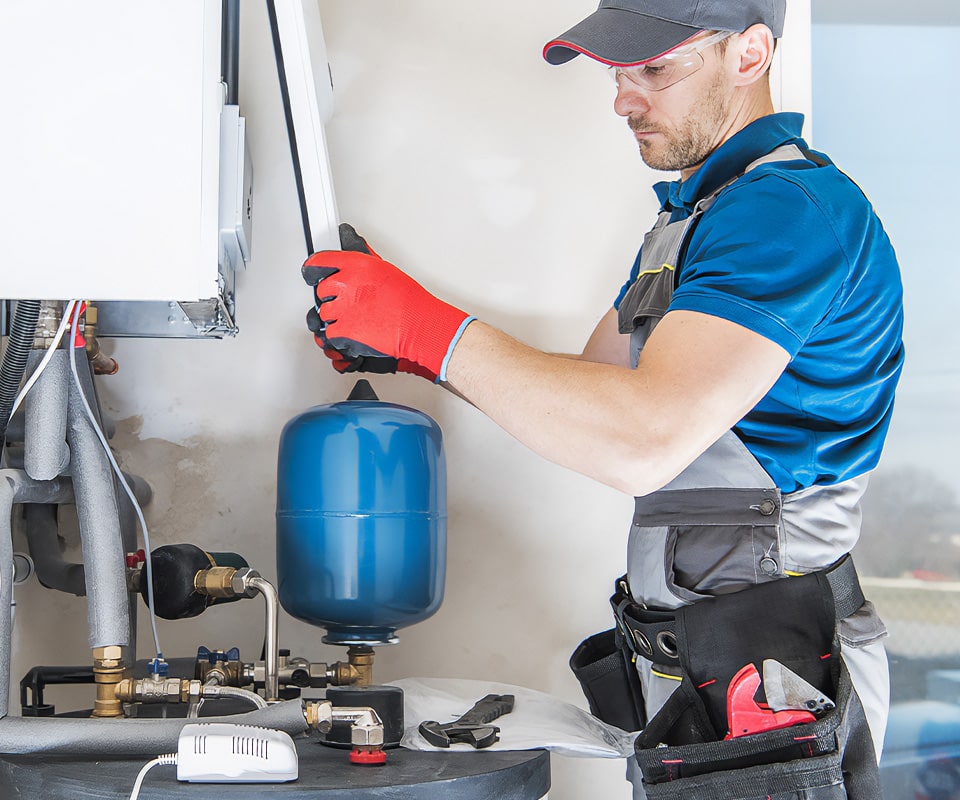Discovering a puddle of water near your furnace can be a concern for any homeowner, especially during the colder months. This common issue raises an important question: “Why is my furnace leaking water?”
Understanding the reasons behind this occurrence is crucial, not only to ensure the proper functioning of your heating system but also to maintain a safe and comfortable living environment. In this article, we’ll explore the various causes of furnace leaks and provide guidance on addressing them effectively.
Understanding How a Furnace Functions
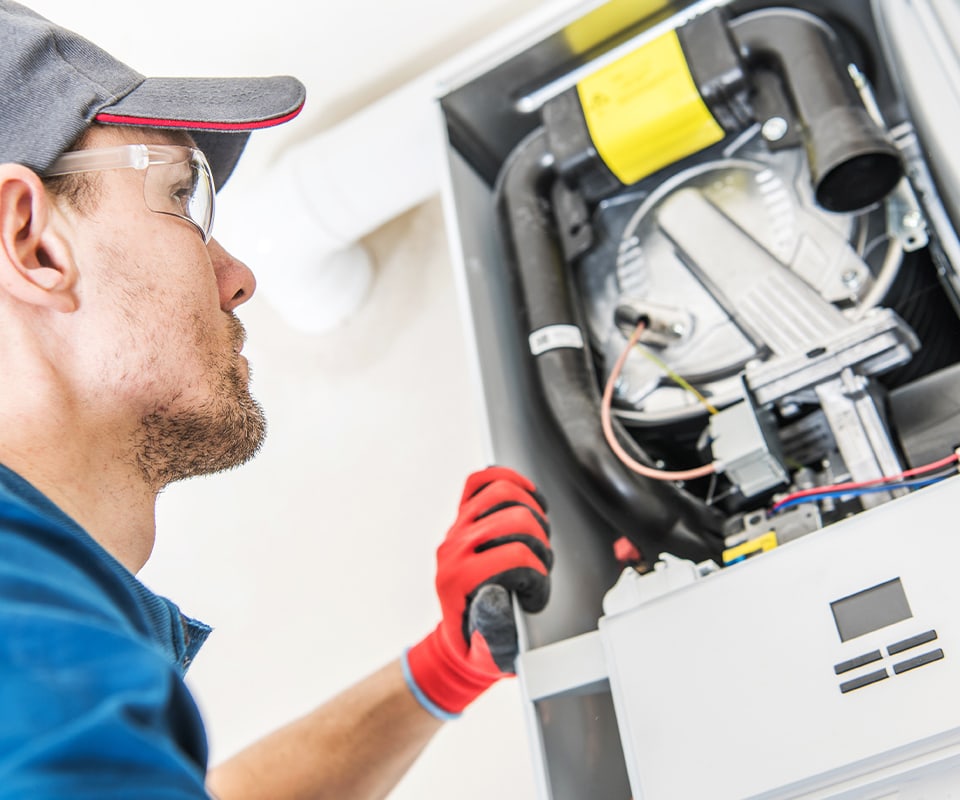
At its core, a furnace is an essential component of your home’s heating system, designed to provide warmth and comfort during colder months. Understanding how your furnace operates is key to identifying potential issues, including water leaks.
A standard furnace works by drawing in cold air from your home, heating it, and distributing the warm air through your ductwork. This process begins with the ignition of the fuel (gas, oil, or electricity), which heats up a metal heat exchanger. The air from your home passes over this exchanger, warming up before being circulated back into your living spaces.
However, even with such a straightforward operation, furnaces can encounter various problems affecting efficiency and safety. One common question homeowners have is, “Can a furnace leak water?” Unfortunately, the answer is yes. Water leakage in a furnace can arise from several sources:
Condensation
This is the most prevalent cause of water leaks in high-efficiency furnaces, which have an AFUE (Annual Fuel Utilization Efficiency) rating of 90% or higher. These furnaces produce condensation as they extract heat from combustion gasses over a longer period, cooling the gasses below their dew point and causing water vapour to condense. Normally, this condensation is safely drained away, but if there’s a problem with the drainage system—like clogs or leaks—it can pool water around the furnace.
Inducer Motor Issues
The inducer motor in your furnace plays a critical role in expelling exhaust gasses. If this motor or its associated components, like the inducer fan, are malfunctioning, it can lead to improper ventilation and condensation issues. Over time, this can cause water to accumulate and leak.
Humidifier Problems
Many furnaces are equipped with attached humidifiers. While these are great for maintaining comfortable moisture levels in your home, a malfunctioning humidifier can leak water into or around your furnace, causing you to question: “Why is my furnace leaking water?”
Clogged Filters and Ducts
Surprisingly, clogged air filters or blocked ducts can also contribute to furnace leaks. When airflow is restricted, it can cause an imbalance in the system, leading to condensation and water accumulation. It’s one of the most preventable issues, a simple annual HVAC maintenance check by a professional is enough to avoid this problem.
Heat Exchanger Cracks
Though less common, cracks in the heat exchanger can lead to water leaks. These cracks allow moisture from combustion gasses to escape and condense outside the exchanger.
Improper Furnace Size or Installation
If your furnace is too large for your home or improperly installed, it can cycle on and off too frequently, leading to excessive condensation and, eventually, water leaks.
Each of these issues requires a different approach to diagnosis and repair. Regular maintenance and understanding how your furnace operates can go a long way in preventing and addressing these problems. If you’re experiencing a furnace leak, it’s important to consult with a professional to accurately diagnose and fix the issue.
Is Furnace Leaking Water Dangerous?
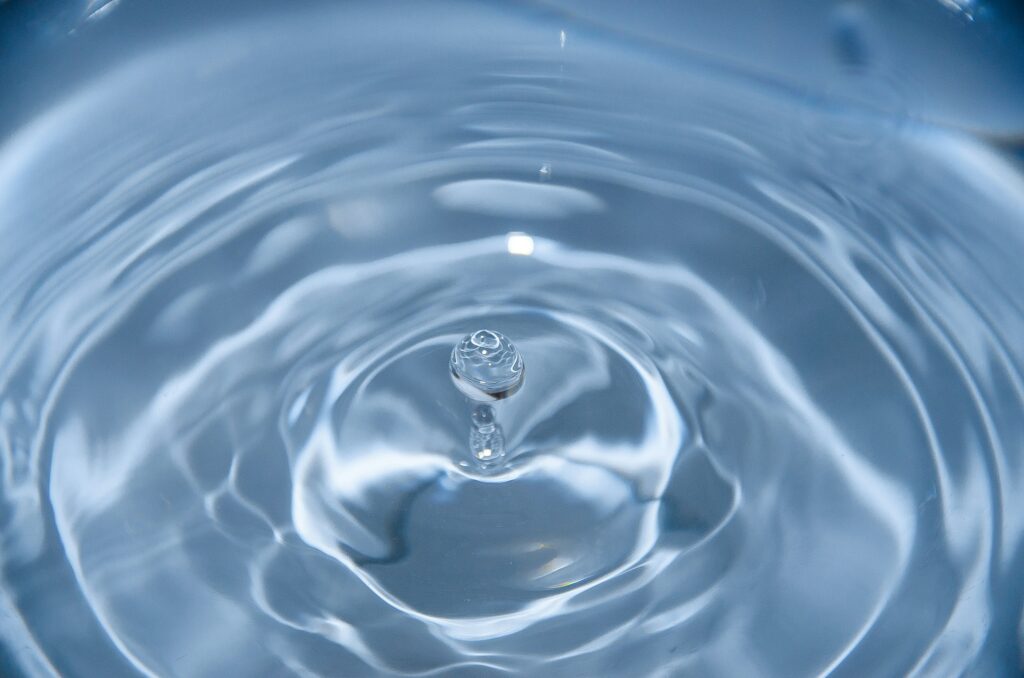
The inquiry “Is furnace leaking water dangerous?” should not be taken lightly. While a water leak in your furnace might not seem like an immediate cause for alarm, it can lead to serious issues over time.
Firstly, continuous exposure to water can cause significant rust and deterioration of various furnace components. This rusting process can compromise the structural integrity of the furnace, leading to costly repairs or even the need for a complete replacement. Moreover, the efficiency of the furnace can be severely impacted as rust and corrosion hinder its ability to heat your home effectively.
Another major concern with a furnace leaking water is the potential for mould and mildew growth. These fungi thrive in moist environments and can quickly spread throughout your home’s ductwork. Once established, mould can be difficult to eradicate and poses significant health risks, particularly to individuals with allergies or respiratory issues.
The presence of mould can degrade indoor air quality and potentially lead to symptoms such as coughing, wheezing, and irritation of the eyes, nose, and throat. In addition to mould, standing water around the furnace can be a breeding ground for bacteria and other harmful microorganisms.
This situation can create an unhealthy living environment and potentially contribute to various health problems. Lastly, water leaks can indicate more serious underlying issues with your furnace, such as a cracked heat exchanger, which can lead to carbon monoxide—a dangerous and potentially lethal gas—into your home.
So yes, to answer your question: “Is furnace leaking water dangerous?” A leaking furnace can be very dangerous if not repaired on time. Therefore, addressing a water leak in your furnace promptly is not just a matter of maintaining the appliance; it’s also crucial for ensuring the health and safety of your home environment.
How to Fix Condensation Leak in Furnace

Condensation leaks in furnaces are a common issue, especially in high-efficiency models. Here’s a step-by-step guide on how to fix a condensation leak in your furnace, although we strongly recommend leaving this to the hands of HVAC experts:
Inspect the Condensation Line and Drain
Begin by examining the condensation line and drain. Look for any signs of clogging or damage. Clogs can often be caused by dirt, debris, or even mould growth.
Clear Any Blockages
If you discover a blockage, carefully clear it. This can sometimes be done using a wet/dry vacuum or a plumber’s snake. Ensure that you’re gentle to avoid causing any damage to the line.
Check for Cracks or Damage
Inspect the line for any cracks or damage that might be causing leaks. Even small cracks can let out significant amounts of water over time.
Repair or Replace Damaged Parts
If you find any damage, the affected parts of the line may need to be repaired or replaced. In many cases, replacement is the most effective solution.
Drain Water from the Inducer Motor
If the leak is coming from the inducer motor, it may be due to condensation buildup within the motor itself. You might be wondering about how to drain water from inducer motor. Draining this water involves careful disassembly and should only be done by a professional.
Test the Condensate Pump
If your furnace has a condensate pump, ensure it’s functioning correctly. A malfunctioning pump can lead to water not being properly expelled from the furnace, resulting in leaks.
Seek Professional Assistance for Complex Issues
If the problem persists or you’re unsure about any part of the process, it’s best to consult a trusted professional with a track record of positive customer reviews. They can accurately diagnose the issue and ensure it’s resolved safely and effectively.
Regular maintenance, including checking and cleaning the condensation line and drain, is crucial to prevent searching for the answer to the dreaded question: “Why is my furnace leaking water?”
Can a Heat Pump Leak Water?
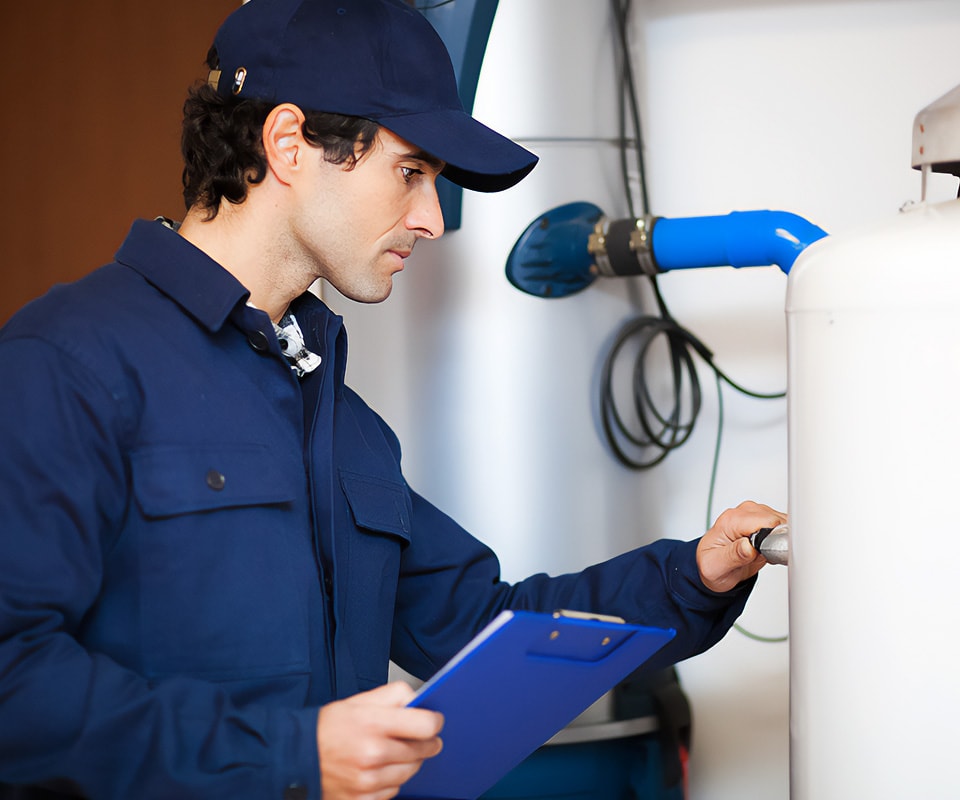
Like furnaces, heat pumps can also leak water. A heat pump works by transferring heat from one area to another, and during this process, it can produce condensation. Similarly to furnaces, heat pump leakage can be easily prevented by proper heat pump maintenance practices.
Reasons for a heat pump leaking water include issues with the condensation drain, ice formation during the heating process, or a malfunctioning component. HVAC professionals will know how to fix heat pump leaking water. It’s always good practice to have reliable emergency HVAC company contact information saved in case of an urgently needed heat pump repair.
Using HVAC Maintenance to Prevent a Leaking Furnace or Heat Pump
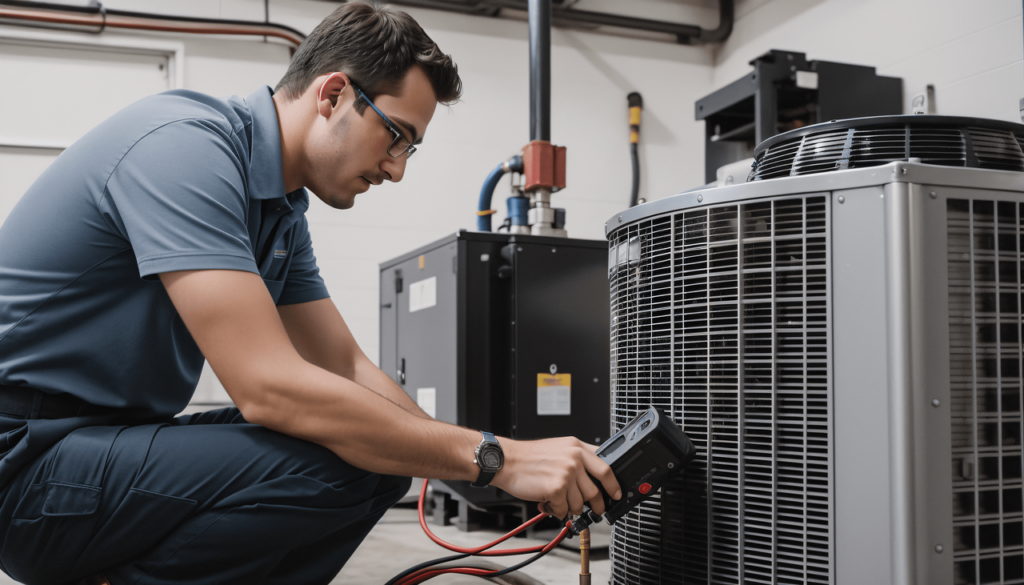
Regular HVAC maintenance is a crucial practice for preventing common issues like a leaking furnace or heat pump issues in Canada. This type of maintenance includes a comprehensive check and cleaning of various components, replacement of filters, and verification that all parts of the system are functioning correctly.
Such a proactive approach not only saves you from costly repairs down the line but also ensures that your heating and cooling system operates at peak efficiency. Additionally, routine maintenance can identify potential problems before they escalate, thereby extending the lifespan of your HVAC unit. It also plays a significant role in maintaining the air quality in your home, ensuring that you and your family breathe clean, healthy air.
Contact Us for Hamilton & Greater Toronto Area HVAC Services
If you’re in the Greater Toronto area and asking, “Why is my furnace leaking water?” or need help with any HVAC issues, Dynamic Heating and Cooling is your go-to service provider. Our team of licensed professionals offers comprehensive services, from repair and maintenance to installation, ensuring your HVAC system functions optimally all year round.
Contact us for reliable and efficient solutions to all your heating and cooling needs.
